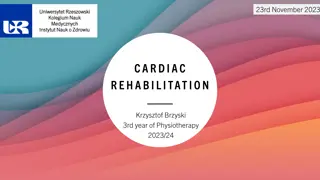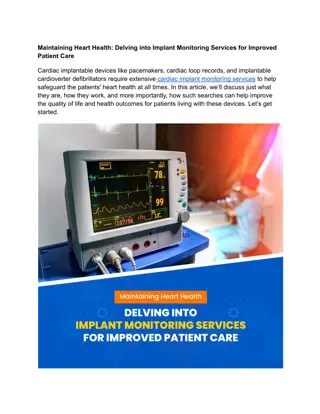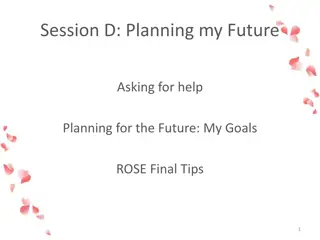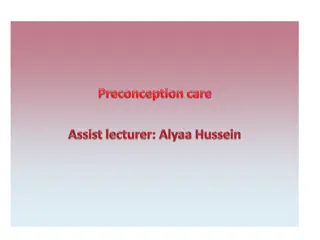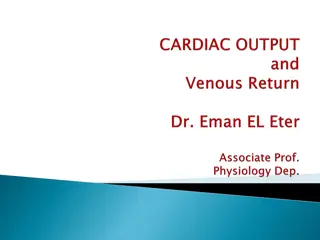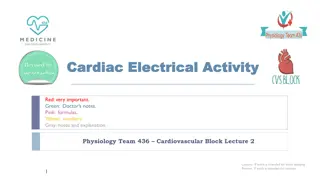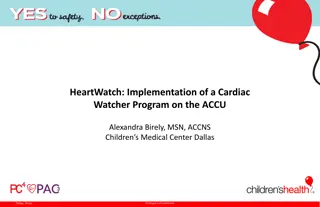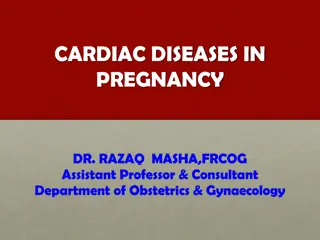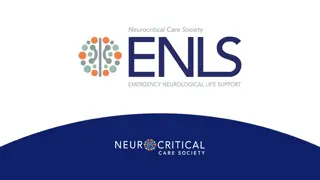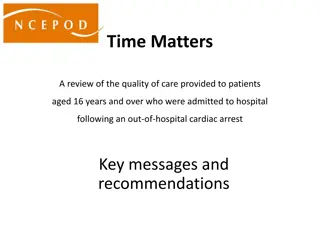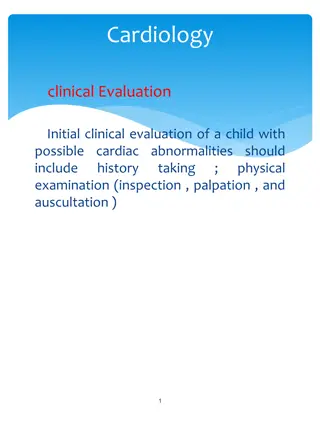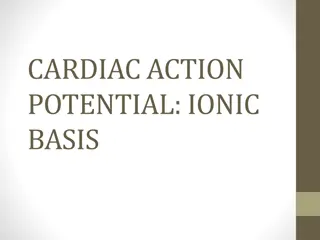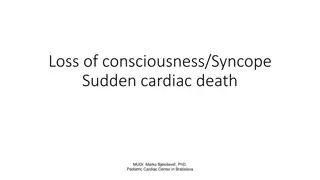Self-Care and Asking for Help: Importance and Strategies for Women's Cardiac Health
Understanding the importance of self-care in women's cardiac health, this content explores the impact of neglecting self-care, benefits of prioritizing self-care, consequences of reduced self-care, and strategies to make time for oneself. It also delves into the challenges of asking for help and provides strategies like the DEARMAN approach to effectively communicate needs.
Download Presentation

Please find below an Image/Link to download the presentation.
The content on the website is provided AS IS for your information and personal use only. It may not be sold, licensed, or shared on other websites without obtaining consent from the author.If you encounter any issues during the download, it is possible that the publisher has removed the file from their server.
You are allowed to download the files provided on this website for personal or commercial use, subject to the condition that they are used lawfully. All files are the property of their respective owners.
The content on the website is provided AS IS for your information and personal use only. It may not be sold, licensed, or shared on other websites without obtaining consent from the author.
E N D
Presentation Transcript
Making Time for Me CARDIAC REHABILITATION FOR WOMEN THE MIRIAM HOSPITAL
Why Make Time for Me? How is my life impacted if I do not take care of myself? What are the benefits of self-care for me? What are my priorities? How do I make time for me?
Possible Consequences of Reduced Self-Care Increased Stress Worsening Cardiac Health Depression Anxiety Vital Exhaustion (excessive fatigue, demoralization, increased irritability)
Benefits of Self-Care Improved stress coping Preventative against depression and anxiety and vital exhaustion Promotes good cardiac health
How Do I Make Time for Me? Utilize Wellness Triad Practice Healthy Thinking Enlist Social Support Engage in Self-regulation/Habits/Routines Daily activity scheduling/Mastery/Pleasure/Meaningful/Relaxation Assertive communication
Asking for help is hard We are often used to a different role: Being in charge Managing the home and jobs Helping others Being caretakers Being mothers, wives, sisters, friends Changes in our roles are stressful and different
When do we need help? We are not getting what we need We are not able to take care of ourselves We are healing and must focus on rest Others aren t taking on a helping role without prompting
How do we ask for help? Often hard to discuss with others Normal to feel embarrassed, upset, angry about role change Can be a challenge to find the right words to say!
DEARMAN Strategy Acronym Like a cheat sheet for asking for what you need. DEAR: What do you say? MAN: How do you say it? Example 1: Stay at home mom needs help with household tasks Example 2: Returning to work after recovery from cardiac event
D: Describe the situation What is the background to your request? Using only facts Makes it easier for others to hear. Example 1: I m in recovery from a cardiac event and the doctor has requested that I rest for 4-6 hours during the day and don t have a heart rate that is elevated beyond 100 bpm. When I do the grocery shopping, I am not able to rest and have an elevated heart rate. Example 2: I ve been in recovery and on medical leave for 6 weeks, and I am about to return to work. My doctor has provided me with recommendations about what I am and am not able to do. This includes recommendations for length of breaks.
E: Express your perspective This is when you include your thoughts and feelings about the issue. You can choose how important it is to share this with others. Example 1: It makes me sad and frustrated that I can t do the things I used to do, and I feel like I m letting you down and that you re disappointed in me. I know it s hard for you to do more around the house since you work. Example 2: I really appreciate your willingness to accommodate my medical needs and it feels great to have such supportive colleagues.
A: Ask for what you need Here is your request! You ve already justified it by describing the situation and expressing your perspective. Be specific. Example 1: I need you to oversee the household duties that I can t do while meeting the doctor s recommendations, like getting groceries. Example 2: I need to take 15 minute breaks every hour.
R: Reinforce Why is this good for you? Why is this good for the other person? Will accepting your request help build your relationship? Example 1: This will help me recover more quickly and be healthier, which is good for both of us and for the kids. And, I will really appreciate all of your help, which is good for our relationship. Example 2: This will help me stay healthy and be a more productive worker. I ll really appreciate the accommodation and support from you all.
M: Mindfully Do what you need to do to feel cool, calm, and collected Extra self-care the night before: Try to get good sleep Eat healthy foods Do enjoyable activities Be kind to yourself Practice relaxation strategies beforehand E.g., deep breathing.
A: Assertively Not aggressive: limit hostility Not passive: don t shy away from discussion
N: willing to Negotiate Sometimes, the answer is no at first. That doesn t mean that your needs are not important or don t need to be addressed. How can we make it work, if no is the response to the first request? Example 1: Can we order delivery groceries? Can the kids help? Can our neighbors or friends help? Example 2: How can we come to an agreement about what is medically necessary for my transition back to work?
All together: Example 1: I m in recovery from a cardiac event and the doctor has requested that I rest for 4-6 hours during the day and don t have a heart rate that is elevated beyond 100 bpm. When I do the grocery shopping, I am not able to rest and have an elevated heart rate. It makes me sad and frustrated that I can t do the things I used to do, and I feel like I m letting you down and that you re disappointed in me. I know it s hard for you to do more around the house since you work during the day. I need you to oversee the household duties that I can t do while meeting the doctor s recommendations, like getting groceries. This will help me recover more quickly and be healthier, which is good for both of us and for the kids. And, I will really appreciate all of your help, which is good for our relationship. Example 2: I ve been in recovery and on medical leave for 6 weeks, and I am about to return to work. My doctor has provided me with recommendations about what I am and am not able to do. This includes recommendations for length of breaks. However, I am feeling fatigued during the day with my current accommodations. I really appreciate your willingness to accommodate my medical needs and it feels great to have such supportive colleagues. I need to take 15 minute breaks every hour, which is an increase from a 15 minute break every other hour. This will help me stay healthy and be a more productive worker. I ll really appreciate the accommodation and support from you all.
DEARMAN D: Describe E: Express A: Ask R: Reinforce M: Mindfully A: Assertively N: Negotiate


